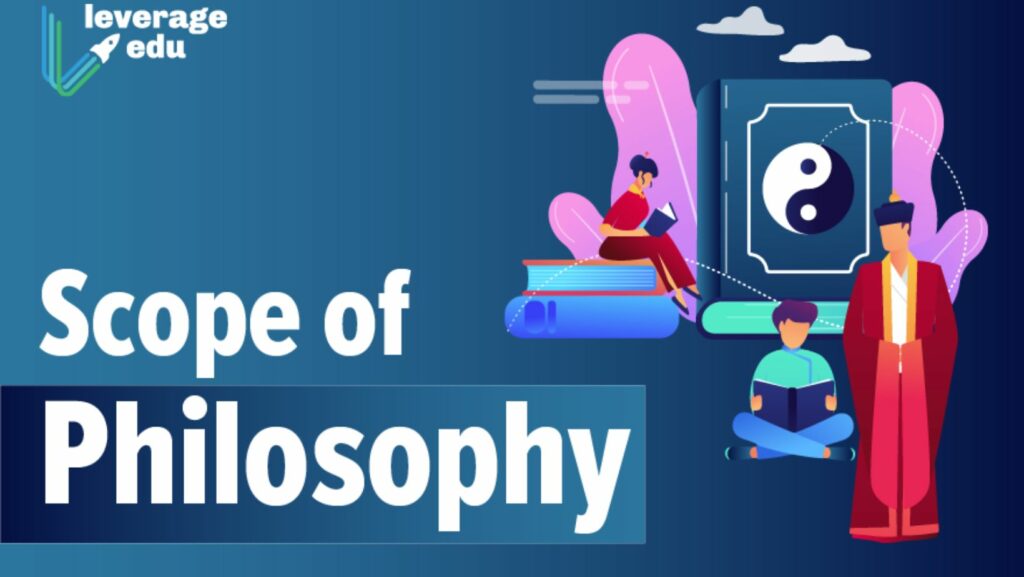
Which of the Following is a Benefit of Philosophy?
Exploring the benefits of philosophy unveils a world of intellectual enrichment and critical thinking. Which of the following is a benefit of philosophy? It’s not just an abstract concept; philosophy plays a pivotal role in shaping perspectives and fostering deeper understanding.

By delving into philosophical inquiries, individuals can hone their analytical skills and cultivate a broader outlook on life. Which of the following is a benefit of philosophy? The quest for wisdom and truth is at the core of philosophical pursuits, offering a unique vantage point to navigate complex ethical dilemmas and existential questions. In essence, philosophy serves as a guiding light, illuminating pathways to profound insights and personal growth.
Understanding Human Nature
Philosophy delves deep into understanding human nature. By analyzing philosophical theories and questioning the fundamental aspects of humanity, individuals can gain profound insights into the complexities of human behavior, emotions, and cognition. Through philosophical inquiry, one can explore the essence of human existence and ponder upon the intricacies of morality, values, and interpersonal relationships.

Enhancing Critical Thinking Skills
Studying philosophy enhances critical thinking skills by encouraging individuals to question assumptions, evaluate arguments, and approach problems from multiple perspectives. It fosters a systematic and logical approach to reasoning, enabling individuals to analyze complex issues, identify fallacies, and construct well-founded arguments. In philosophical discourse, one learns to dissect ideas, challenge beliefs, and engage in rigorous intellectual debate, thereby honing their analytical abilities and fostering a deeper understanding of the world.
Exploring Existential Questions
Philosophy provides a platform for individuals to explore existential questions surrounding life, death, meaning, and purpose. By contemplating philosophical inquiries on existence and the human condition, individuals can reflect on their place in the universe, grapple with the concept of mortality, and seek meaning in their experiences. Through philosophical exploration, individuals confront profound existential dilemmas, confront their fears and uncertainties, and embark on a journey of self-discovery and personal growth.
Development of Personal Philosophy
Exploring the core tenets of philosophy leads to the development of a personal philosophy, shaping an individual’s ethical beliefs, and offering insights into the meaning and purpose of life.
Formulating Ethical Beliefs
Studying philosophy aids in formulating ethical beliefs by engaging individuals in ethical theories and moral dilemmas, ultimately guiding them towards understanding their values and principles.
Finding Meaning and Purpose
Philosophical inquiry helps individuals find meaning and purpose by prompting reflection on existential questions, fostering deep introspection, and guiding them towards a more profound understanding of their place in the world.
Contributions to Society
Philosophy has a significant impact on various aspects of society, influencing education, politics, cultural perceptions, and social understandings. Through its rigorous examination of fundamental questions and critical thinking skills development, philosophy plays a crucial role in shaping societal values and norms.

Impact on Education and Politics
Philosophy’s emphasis on critical thinking and logical reasoning contributes to the development of well-rounded individuals who can analyze complex situations, form sound arguments, and make informed decisions. In education, philosophical inquiry fosters intellectual growth, encourages open-mindedness, and cultivates a culture of questioning and reasoning, essential for academic excellence. Moreover, in politics, philosophical principles underpin ethical decision-making, policy formulation, and governance practices, promoting justice, fairness, and the common good.
Influence on Cultural and Social Understandings
Philosophy’s exploration of existential questions and ethical dilemmas sheds light on cultural norms, societal values, and human interactions. By delving into different philosophical traditions, societies can gain a deeper understanding of diverse perspectives, promoting tolerance, empathy, and inclusivity. Philosophical insights challenge ingrained beliefs, spark debates on social issues, and contribute to the evolution of cultural norms, fostering a more reflective and compassionate society.
Practical Applications
Philosophy has tangible benefits that extend beyond theoretical discussions. It plays a crucial role in decision-making, problem-solving, and personal growth, influencing various aspects of life.
Decision Making in Personal and Professional Life
Philosophy enhances decision-making skills in both personal and professional spheres. By engaging with ethical theories and moral philosophies, individuals can make well-informed choices aligned with their values and principles. In personal life, philosophical reflections help in navigating complex moral dilemmas, fostering self-awareness, and promoting a sense of fulfillment. In professional settings, philosophy aids in ethical decision-making, critical analysis, and strategic planning, leading to more reasoned and principled actions.
